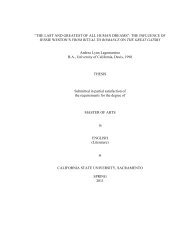COMMUNITY ACTIVISM IN OAK PARK: COMPETING AGENDAS ...
COMMUNITY ACTIVISM IN OAK PARK: COMPETING AGENDAS ...
COMMUNITY ACTIVISM IN OAK PARK: COMPETING AGENDAS ...
Create successful ePaper yourself
Turn your PDF publications into a flip-book with our unique Google optimized e-Paper software.
over commercial life, the use of the street, and the meaning of local history. While the<br />
middle-class defines liquor stores and decaying parks as dilapidated “eyesores,” the<br />
unemployed perceive these spaces as places where they can “hang-out,” meet up with<br />
friends, and share information. The unemployed and lower-income residents, who<br />
usually do not participate in neighborhood activism, therefore, do not speak on behalf of<br />
themselves to tell their story from their perspective. The increased policing of public<br />
spaces, such as liquor stores and parks, disrupts the daily routine and security in the lives<br />
of the lower-income residents. In sum, public space 16 in the neighborhood can be<br />
described as places that are characterized by conflict and social control, where<br />
individuals are policed. This public discourse thus reveals people’s sense of their rights<br />
to the city. 17<br />
In Oak Park, community groups with diverging perspectives on social change are<br />
involved in neighborhood activism. Their agendas for change overlap, creating social<br />
conflict in the urban landscape. A local Neighborhood Association, composed of newly<br />
arriving middle-class residents, is working to revitalize the neighborhood through<br />
projects focused on economic development because its members believe that<br />
development will rid the neighborhood of crime and ‘blight’ and will ultimately improve<br />
the community. A women’s group takes a more moderate stance, and works to facilitate<br />
change from the ‘ground up,’ and has an agenda to help empower women in the<br />
neighborhood. Alongside these efforts, a local neighborhood labor association follows a<br />
Marxist ideology and practices ‘radical’ politics. They feel the poor can be helped only if<br />
resources are distributed evenly by the government and believe capitalism is the stem of<br />
40



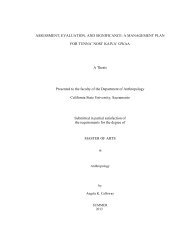
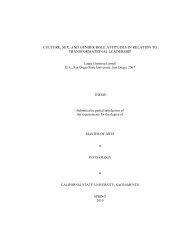
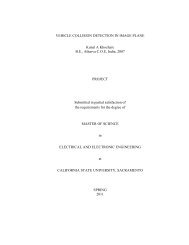
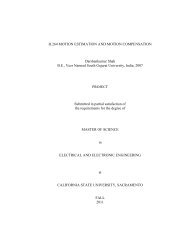
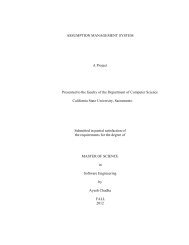
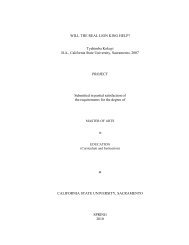
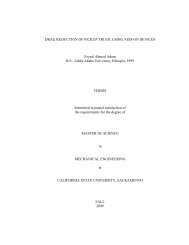
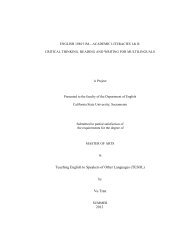
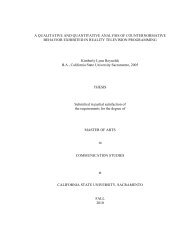
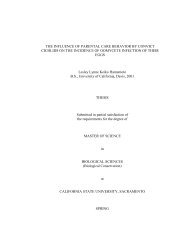
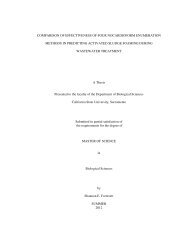
![Completed Thesis to Grad Studies[Final3].pdf](https://img.yumpu.com/17538645/1/190x245/completed-thesis-to-grad-studiesfinal3pdf.jpg?quality=85)
